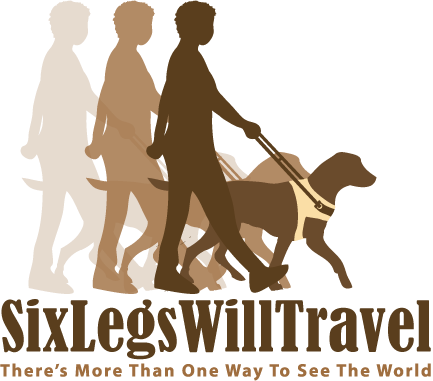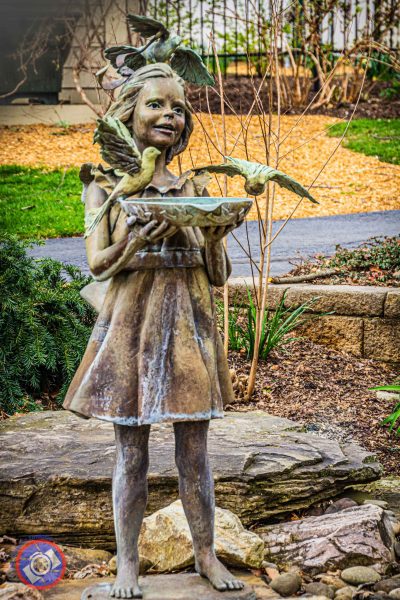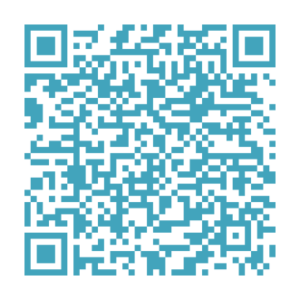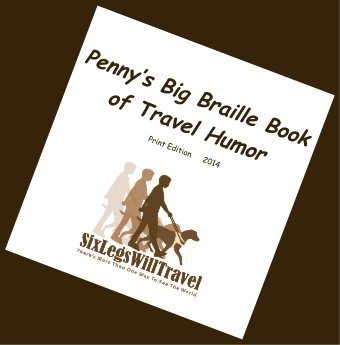The Present is Bleak, the Future Uncertain, but these Creative, Committed People Refuse to Give-up.
In recent posts, I’ve documented our experiences during the Coronavirus (CoVid-19) crisis: our tumultuous two weeks in Europe, how we’re coping at home, and resources to keep us from going crazy. As a travel writer, I strive to inform, entertain, and inspire my readers to find their individual travel sweet spot. But I would be remiss in not acknowledging the heartbreak that sometimes comes with the territory.
When it comes to the Coronavirus impacts on the phenomenal people Simon and I have come to know and respect over the last seven years, our hearts go out to them as we see their suffering. So, I contacted some of these amazing folks and asked them four questions. The plan was to give you a firsthand look at what small businesses, tour operators, and destination professionals are dealing with and how they see the future of travel when this butt-ugly Coronavirus cloud finally begins to lift.
Below are the responses I received. My thanks go out to these phenomenal people for taking the time to share their thoughts with us.
Small Businesses with Big Challenges
The travel industry is suffering tremendously from the restrictions Coronavirus has brought about. Airlines, cruise lines and large hotel chains have more resources upon which to draw than do family-run hotels and restaurants, as well as other small travel-related businesses. Here is how the current and post-pandemic landscape looks to strong, creative individuals like Leonardo Williams, Co-Owner of Zweli’s Kitchen in Durham, North Carolina, Nick Brennan, Founder and CEO, My UK SIM Card, and Brian Bergey, Co-Owner, Lost Plate Food Tours.
1. How have Coronavirus and the resulting restrictions affected you?

Leonardo: “Zweli’s has taken a significant hit sales-wise. We designed Zweli’s to be very communal, capitalizing on people engaging with one another over good food and good conversation. However, the Coronavirus impacts have made everything so uncertain. As a result, we have changed our entire business model. Like most restaurants and in accordance with the Governor’s executive order, we are only providing service via curbside and delivery. What makes us unique is that due to Zweli’s being such a new establishment, we desperately had to extend our delivery radius to 25 miles, rather than the market 5-mile radius. Due to these restrictions, our sales are now down 75%.”
Nick: “Personally it means all my international travel has been curbed. For example, I had a golf trip to Palm Spring this week and a trip to Myrtle Beach in early May. These have both been canceled. Thankfully American Airlines has been good to refund my air tickets, and my hotel in Palm Springs also refunded me.
From a business perspective, it means my sales have totally tanked. I have had zero sales for the last month and ALSO I’ve been having to process refunds. I have a generous refund policy and so that is impacting cash flow. It is a difficult situation.”

Brian: “Since the majority of our tours take place in China, we haven’t been able to run any tours since January 21st, just before Chinese New Year. Once Wuhan went into lockdown and the US initiated flight restrictions to/from China, we experienced a 100% cancellation rate through March. As the weeks and months moved forward, that cancellation rate has extended throughout the entire year. We also haven’t had any new 2020 bookings since January. This means at the moment, in China, there is no demand for the entire year.”
2. What changes have you made in order to keep things going during this time?
Leonardo: “We were fortunate enough to land a government contract. Our local government decided to pay us via a contract for doing the work we were already doing; feeding the homeless and residents who have been displaced from their homes due to unfortunate circumstances. So, this in conjunction with low sales, is providing us the bare minimum to stay afloat.”
Nick: “There’s little I can do. Sales have dried up completely. Website traffic is almost zero. No one is planning overseas travel. I am though doing some website changes and looking at my marketing plan for the rest of the year and into 2021.”
Brian: “When the virus first started to impact our business in China, we started focusing on other markets that we operate in. We run tours in Cambodia and Portland and are working on expanding into a few new markets in Asia. So we put our entire focus on those places to improve our products, increase our marketing, and continue our research. By March, it was clear that the Coronavirus impacts were going to be everywhere from a tourism perspective and all of those projects naturally had to stop. In the meantime, we have had to reduce salaries for all full-time employees and eliminate salaries for all owners. Since our team was spread throughout China and the world, we have done our best to communicate daily online and have regular conference calls with each other. This month, our office in Beijing has re-opened and those of us in town are now in the office daily. We are now focused on long-term projects that will build a bigger and better company after all of this is over, as well as ways that will enable us to launch new products quicker than waiting for travel to return.”
3. What are your recovery plans for the time when people begin traveling again?
Leonardo: “We are currently interviewing prospects to join our team when reality sets back in. The upside to this is that we have enough time to truly vet each candidate. In addition to this, we are revamping our training for staff.”
Nick: “Thankfully my business can be up and running instantly as sales come through the website. I have plenty of stock ready for immediate dispatch. To this extent, I am certainly in a better position than many others in the travel industry but it is still causing monumental pain.”
Brian: “This is hard because it’s impossible to know when, where, and how travel will resume. We are working on a lot of new projects, and we are making sure that everything we do during this time is not temporary. For example, we are re-building our website and marketing materials, which will make us better and stronger in the future. I also think domestic travel will rebound quicker than international travel, so in China, we are developing new products for Chinese customers. We hope that this will allow us to launch tours quicker than waiting for our English-speaking customer base to return.”
4. How do you see the future of travel in general, and that of your business in particular, in a post-Coronavirus world?
Leonardo: “I was just speaking of this. I foresee an influx of customer interactions. We plan to increase our accessibility by streamlining our takeout/curbside service, keep offering delivery but at a smaller radius, and increase staff with a more systematic method of serving customers. It will be our responsibility to adjust fast once people are able to travel out again.”
Nick: “I think that travel is going to return substantially to what it was. People will still take international vacations. I think though there will be a somewhat lower demand for 6-12 months because people will have less money to spend. I do expect though there will be a sudden flurry of travel bookings as people scoop up the many bargains that will be around, but that it will regress to a level lower than pre-coronavirus for at least 6-12 months.”
Brian: “I’m expecting a very different travel landscape, but I still don’t know what that looks like yet. Being in China, we were impacted by all of this before everyone else. I know how fast things change and how those changes have caused us to change our plans and strategy almost weekly. I do think consumers will demand certain changes throughout the entire industry. This includes things like more flexible cancellation and refund policies, and a focus on personal health and safety. It will be a long time until everyone is comfortable cramming onto a full plane or a crowded train station, so the transportation industry may need to limit passengers which may make travel more expensive…especially since some of those providers may be eliminated during this time.
Accommodation providers will need to display their steps towards cleanliness and disinfecting of rooms and public spaces. Technology providers, like the myriad of OTAs (online travel agencies, ie; TripAdvisor, Expedia, Booking.com, etc) currently in the market will likely be consolidated since their revenue is based on commissions and their margins are slim. For our business, I’m mostly worried about when the return of travel will come. Once people are in a destination, their desire for unique experiences, and their need for good food, will still exist. But I do think we will need to make adjustments to ensure the cleanliness and safety of everything we do. I think in most of our locations, a number of restaurants will go out of business (or already be gone) and we will need to naturally adjust our routes due to the changing economic climate. Separately, I do think new niche markets will start sticking after this crisis. For example, from a food-related perspective, you see things like online cooking classes, online cooking competitions, online beer/wine tasting, etc pop up a lot now. Even after travel resumes, this may be the most realistic way people can have new experiences depending on their financial situation and the readiness (or willingness) of affordable travel.”
Destination Devastation
From museums to national parks, everything is shut down. Also, tourist bureaus and convention and visitors bureaus have had to alter their approach to marketing in order to keep the fires of interest and curiosity alight. Fortunately, technology is helping reduce the Coronavirus impacts to these entities by making it possible to bring a taste of what they have to offer into the homes of potential future visitors. Nick Gunn, Marketing Manager, The Wild Center, Rick Dunlap, APR, Public Relations Director, Visit Hershey-Harrisburg, and Dave Degolyer, Communications Manager, Corning, and Southern Finger Lakes are on the frontline. Here’s how they’re adapting to the new normal and planning for an uncertain future.
1. How have Coronavirus and the resulting restrictions affected you?

Nick: “Personally, I am very fortunate in that, because of the nature of my job, I am able to work from home and still be able to accomplish most of my responsibilities. Honestly, the biggest change has been just getting used to holding Zoom meetings instead of in-person meetings. In a way, the restrictions have made me have to think more creatively and have allowed extra time to devote to projects that have been shelved in the past. From The Wild Center’s perspective, ceasing public operations since March 12 has meant a total shift in how we deliver our mission. The Wild Center team was very proactive and had been planning for a potential closing for a couple of weeks. It allowed us to roll out digital programming very quickly after the restrictions were put in place. It is a testament to the devotion and creativity of the folks at The Wild Center.”
Rick: “Professionally our DMO has pulled all planned Spring advertising and sales efforts have halted. We have also postponed several Media Visits – currently trying to retain those journalists and reschedule for later in 2020.
Our organization also furloughed 1/3 of our staff last week (5 of 15) – temporarily laying off (1) front desk staff, (3) sales managers, (1) production manager. Our entire team continues to work remotely from home for the past 4 weeks using programs like TEAMS and Google Docs, etc.
Personally, we are healthy which is our top priority and concern. We also are not dealing currently with any immediate family or friends who have health concerns related to CoVid-19. Our two children are just returning to school work – officially. Which started online in PA this week for all grades.”

Dave: “We are all affected daily in a myriad ways, personally and professionally. This is such a profound global phenomenon that I’m not entirely sure you can really separate the two anymore. Obviously, from a tourism standpoint, things are quite challenging. What the world needs right now is the very opposite of what we rely on, so our businesses are having to adapt. We are all having to adapt.”
2. What changes have you made in order to keep things going during this time?
Nick: “The Wild Center has shifted to an entirely digital experience. First, we published a virtual visit we had been working on with Lasky Films over the winter. It allows users to “walk” through the Center and see our exhibits. It even highlights behind-the-scenes portions of the building often not available for the public. We’ve also made a commitment to deliver daily programming through live streams on our website and Facebook page. Lunchtime Live provides viewers with programming they would normally experience at The Wild Center. They can get up close with one of our animals, find out about activities they can do at home, and be able to live chat with a naturalist. Our Digital Drop-in educational programs on Tuesdays and Thursdays deliver I-STEM educational programs for students and teachers that are looking for at-home educational programs. We’re always conjuring up new ideas for content and different ways for people to interact with The Wild Center. Although they may not be able to visit The Wild Center and get in touch with nature, we hope to virtually show people that there are wonderful things to discover at home.”

Rick: “I bought a deep freezer just days before this hit U.S. as we were anticipating limited access to grocery stores, etc. We have been calling friends and family more. Typically would be text or email but now we are having direct calls. We also have been “curbing” with a few of our closer friends in the neighborhood. (This is when we pour a beverage and each couple sits on the curb on opposite sides of our street.) My wife’s family has started meeting virtually on Zoom at 5pm each Sunday to catch up.”
Dave: “A number of our businesses are getting creative so as to stay connected with the larger world. Museums like The Corning Museum of Glass and The Rockwell Museum have put together various ways folks can experience the museums and some of their offerings from the safety of their homes and the comfort of their couches.
The Rockwell has created its digital eMuseum featuring some works from the permanent collection that are available online, are offering an online lecture on Women in Philanthropy as part of their Advancing Women project, and they have even put together fun “friend packs” of gifts you can send to people you can’t be with right now as well as some art projects you can do from home (like these printmaking projects).
The Corning Museum of Glass (CMoG) put together a number of ways folks can interact with the museum, including videos. CMoG is also offering a new “Watch with the Artist” virtual program on its YouTube channel. Based on past demos from their Guest Artist program, the Watch with the Artist series gives viewers a new way to engage live with talented artists as they watch previously recorded demos together.
Some of our Finger Lakes wineries (Weis Vineyards, Ravines Wine Cellars) have been offering weekly virtual tastings on social media (you can even order wines ahead of time that are part of the tasting if you’d like, or you can merely watch and learn about the wines for future reference).
One other thing that has changed for us, is that our website has become a resource page for folks related to COVID-19. Instead of promoting events people can enjoy right now, we are trying to convey beauty, positivity, and light as much as we can.
3. What are your recovery plans for the time when people begin traveling again?
Nick: “The Wild Center is constantly monitoring the Coronavirus situation and is adhering to all government and health department recommendations for safe operations. We’ve taken this downtime to ensure The Wild Center is as safe as possible whenever we get the green-light to reopen doors. Our staff will be ready to resume normal operations whenever it is safe to do so. Our message to people beginning to travel is that The Wild Center is a safe and fun place to bring your family. I think one of the biggest draws of the Adirondacks is the outdoor experience that it provides. There are 6 million acres of open space and fresh air. The Wild Center’s 115-acre campus provides plenty of outdoor space for travelers to enjoy and reconnect with nature.”
Rick: “We are still working on plans on how our marketing approaches and messaging will change upon return to promoting our region as a travel destination.
For PR/Media we are trying to retain those who have committed to visiting our region but are making it easy to reschedule at any time in 2020 or early 2021.
As we are still not clear on the timeline or risks of 2nd wave in the fall/early winter – many journalists are showing interest in visiting but are not committing to any dates at this time.
Sales are considering a full-court press upon return and are running scenarios where we transition any and all staff at DMO with sales backgrounds or previous sales experience to focus on sales related to generating business leads for our partners for Meetings, Conferences, Trade/Consumer Shows, Youth Sports + Large “Citywide” Events, Group Tours, Reunions, Weddings, etc. This may result in doubling our sales staff and outreach for the coming fiscal year (July 2020 thru June 2021.)
Personally, we have not cancelled our reservation (yet) for a beach trip in early August. Wait and see.”
4. How do you see the future of travel in general, and that of your business in particular, in a post-Coronavirus world?
Nick: “In a post-Coronavirus world, at least in the short-term, I think visitors will be more mindful of types of transportation they are using and visiting densely populated areas or attractions. As for The Wild Center, I think our mission of connecting people with nature has never been more apt. I think that we may be a respite for visitors looking to balance safety and the traditional travel/attraction experience.”
Rick: We anticipate the traveler desires and travel-values will change post-COVID. We aren’t sure yet what they may look like.
We are also anticipating a surge in travel once it’s deemed safe as there will be a global pent-up desire to get out of the house after months of quarantine and cancellations of previous travel plans/vacations.
Health and Safety will be the primary concerns for family travel decisions.
Some travel experts are predicting a “psychological hangover” with travelers that may have them seeking out destinations or activities with built-in social distancing.
Destinations or activities that may trend post-COVID include outdoors (National + State Parks), smaller attractions or “forgotten travel” like the family road trip and roadside attractions (nostalgia).
We also believe driving destinations will be more popular than flying and cruising. This is good for drive-destinations like our region.
However, one of our main consumer travel draws is an amusement park which families may be hesitant to visit in the early stages of recovery due to safety concerns with large crowds, no social distancing, multiple public touch-points such as queue line railings, ride restraints, etc.”
Dave: “The Steuben County Conference & Visitors Bureau is discussing those things currently though I’m not sure we are ready to reveal what those plans will be just yet as there are a number of variables that will control those decisions.
What future travelers will be craving/seeking as well as actual emotional, intellectual, and tangible needs once they are able to travel again will likely be different from what it has been in the past. For example, wide-open spaces and the outdoors may be more appealing to folks than they have been in the past (and/or to folks who haven’t had those interests in the past). While we have been promoting the remarkable outdoor activities and experiences found here, there will probably be a shift in just how those activities are presented and experienced.
Any plans we make will need to consider those changes as well as the diverse businesses and opportunities available here. We represent over 400 different tourism-related businesses and experiences in a county that is larger than the state of Rhode Island ranging from cheese producers and alpaca farms to boutiques and antique shops, from B&Bs and country inns to world-class museums, from award-winning wineries and craft beverage producers to exceptional culinary options, from small-town farm markets to State parks and other sites for outdoor recreation, but people also come here for extraordinary annual events, and how people travel after this will impact what is offered in the future and how it is presented which means responses and offerings will be quite varied.
Conveying a message of hope and safety will be important, as well as the chance to relax and catch one’s breath again. One of the unique and wonderful byproducts of being located in such a geographically expansive and breathtaking locale is the sense of calm and peacefulness one finds after spending some time here and that is likely something that will resonate with everyone. But the answer to your question is rather complex and not one that can be answered just yet, as travel (the concept and the act) will change quite a bit from what it has been in the past.
Will We Ever Cruise Again?

Cruising checks off different boxes for different travelers: relaxation, partying, adventure. But for many, it is the mode of traveling their health, abilities, and comfort level will allow. You might remember the challenges faced by Holland America’s Westerdam in Japan, and the compassionate and professional way in which the crew managed the situation? Well that was the same ship on which we took our first cruise with Holland America, and the same ship on which we were to sail out of Yokohama in late April.
Wanting to know where things currently stood, I contacted Jerrol Golden, Deputy Director, International Public Relations, Holland America Line. She sent me a press release, containing this quote, “As the world addresses global health concerns, travel has come to a temporary standstill as communities take necessary precautions to protect themselves,” said Orlando Ashford, president of Holland America Line. “All of us at Holland America Line are wishing everyone the best during this unprecedented time.”
But what really caught my attention was her comment in the accompanying email. “Bottom line is people will continue to travel when they can and cruising still offers the best value. This is a temporary pause that we’re confident we’ll get through.”
Although most cruise lines will survive and flourish once more, my heart goes out to the crew members who rely heavily on tips to feed their families in countries like Thailand, Malaysia and the Philippines. For their sake especially, I hope Jerrol’s optimism is right on the money.
Final Thoughts
You’ve just read a small sample of the trials and tribulations faced by people in the travel industry worldwide. You have an idea of the losses they face, the creativity and courage they show, and their hopes for the future. Although you can’t travel, I hope you will show some love to the businesses and travel professionals in your own community. We’re all in this together, and the decisions we make today will shape the future for those who embrace the joys of travel.




